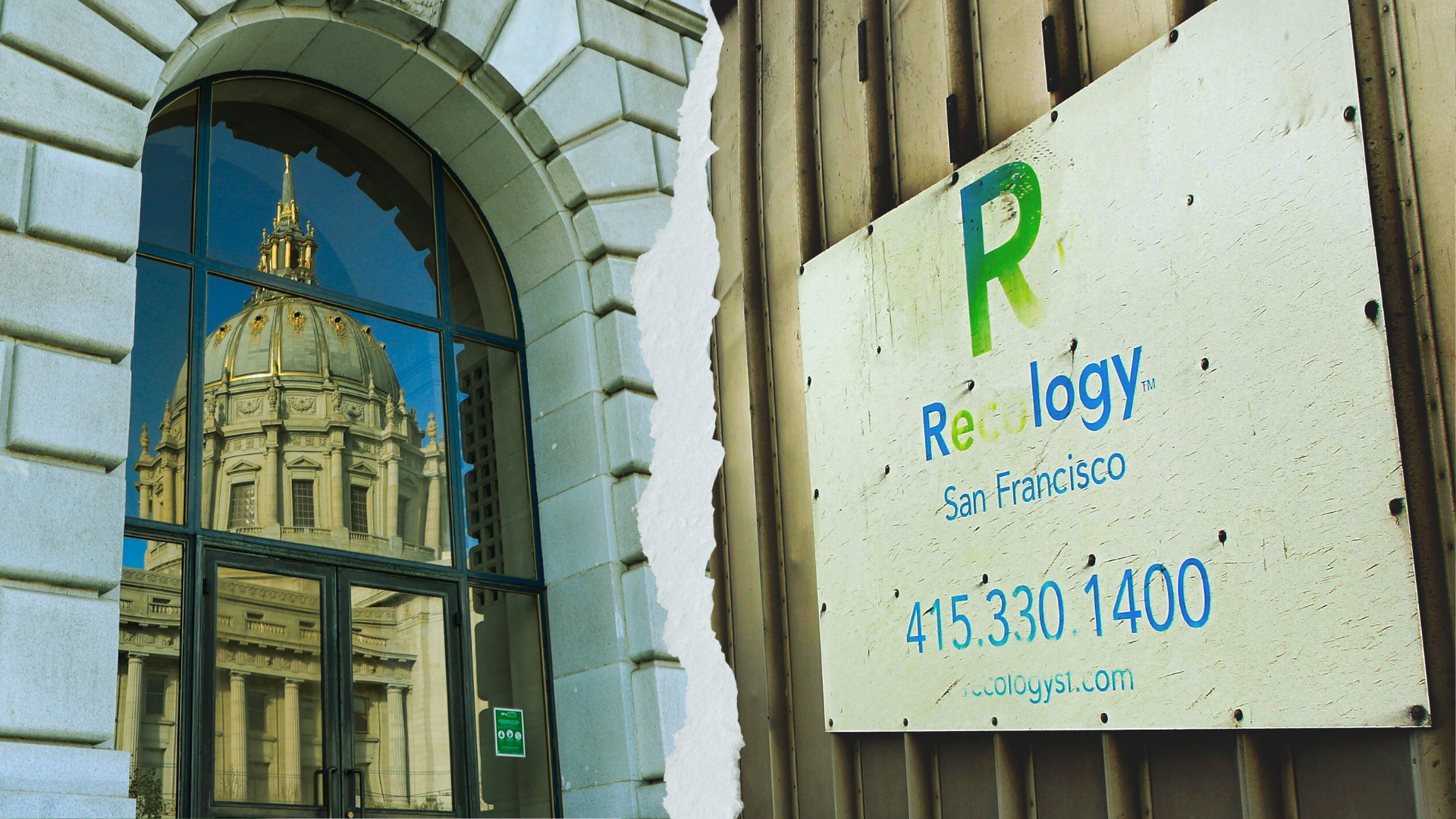Less than a year after trash-hauling giant Recology admitted to overcharging San Franciscans nearly $95 million as part of a widespread corruption scandal, city officials are once again investigating whether the company improperly billed ratepayers, The Standard has learned.
And one supervisor suspects the additional overbilling could be to the tune of tens of millions of dollars.
City Controller Ben Rosenfield is investigating whether the potential overcharging goes beyond the $94.5 million settlement Recology agreed to pay local customers last March after being ensnared in a federal corruption case involving former Public Works head Mohammed Nuru. Nuru faces up to 20 years in prison after pleading guilty last week to a fraud charge.
In a November letter to the waste giant, Rosenfield asked the firm to justify its rates and provide audited financials for its parent company and three subsidiaries — Recology San Francisco, Recology Golden Gate and Recology Sunset Scavenger — going back to 2016. Recology, which was required to lower its rates as part of last year’s settlement, enjoys a monopoly on trash pick-up in San Francisco under a local ordinance dating back to 1932.
“We have ongoing questions and concerns regarding [Recology’s past] rate setting and charging practices,” Rosenfield said in a statement to The Standard. “We’ve shared a host of questions with Recology and asked for further financial and other information to investigate further.”
Supervisor Aaron Peskin said he is certain Recology overcharged customers more than the previously disclosed figure. His main question is how much.
“I am convinced that the $100 million that Recology was forced to give back in overcharges is only a portion of what they overcharged,” Peskin said. “I expect that in the next couple of weeks, there will be a formal report from the city that shows that Recology overcharged the city probably another $100 million.”
Peskin and Recology are currently at odds over proposed reforms to the process for setting garbage rates. That process played a central role in the City Hall corruption scandal and is set in stone by the city ordinance from 90 years ago. While Peskin is seeking to reform the process with a June ballot measure, Recology has submitted its own watered-down proposal to elections officials. The firm needs to collect nearly 9,000 signatures by Feb. 7 to get on the ballot.
In a statement, Recology disputed the specific dollar amount Peskin alleged and noted that the firm is cooperating with the inquiry.
“Recology has not seen any analysis that would lead Supervisor Peskin to believe that there were millions more in overcharges unaccounted for by the settlement,” Recology spokesperson Robert Reed said. “Recology will continue to work cooperatively with the City Controller on all matters.”
Recology’s rates are calculated based on its reported revenues and expenses. The firm previously overcharged customers by under-reporting its revenues while seeking a rate increase from Nuru in 2016-17.
Nuru approved a 14% rate increase for Recology for the fiscal year ending in 2018 instead of the 7% hike that was actually warranted, according to the City Attorney’s Office. While Recology and Public Works discussed the issue in December 2018, the error was not corrected for another two years and ratepayers continued to be overcharged. The firm lowered its rates by nearly 7% as part of the settlement last April.
At the time, Recology characterized the error as a mistake. But then-City Attorney Dennis Herrera said the overcharging resulted from the cozy relationship between Recology and Nuru, who Recology showered with a steady stream of benefits over the years. Those benefits included hundreds of thousands of dollars in payments to a nonprofit account controlled by Nuru.
The Controller’s Office is now looking at other areas of concern that could have led to additional overcharging by Recology, including whether the firm accurately reported costs associated with employing workers. The controller also asked Recology to explain how the sale of a property at 900 7th Street to Amazon for a reported $202 million may have impacted its expenses. Recology reported a rent increase in 2021 of more than 300%.
Larry Bush, a member of San Francisco’s Ethics Commission, told The Standard in a phone interview that it was “pretty clear that Recology gamed the system.” Bush said it wasn’t enough for the trash company to agree to repay customers in a settlement without further investigation.
“There needs to be a thorough examination of how the rates are being set now and what the impact has been on the rates until now,” Bush said. “In other words, it’s fact-finding time.”
In his statement to The Standard, Rosenfield said it would be “premature to provide figures regarding the value of any potential overcharging.”
The controller said he will publicly release his office’s findings at a later date.
